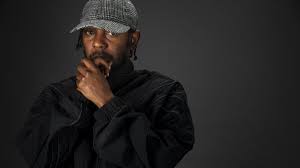Kendrick Lamar’s Therapy: “Count Me In,” or “Count Me Out?”

Kendrick Lamar’s most confessional and controversial album, Mr. Morale and the Big Steppers, had me hooked within the first few verses of the first track, “United in Grief:”
“I went out and got me a therapist.”
With that line, and many references to therapy sprinkled throughout the songs and interludes, the whole album makes sense as a therapeutic journey. With that context, my focus zoomed in just like it does with my clients. Like a star therapy client, Lamar pours himself into the work, he vents, he questions, he tells stories, he explores his trauma, he considers intergenerational trauma, he circles back to themes, often going more into depth each time he revisits an issue. Sometimes he makes no sense, sometimes what he says and does is cringey. Sometimes he knows that, and sometimes he might not. I hear Lamar as a client on this album. Someone telling his history raw and unedited to see what comes up. Someone who is trying on words to see what they really mean. Someone trying out new behaviors – some helpful, some misguided – to see what happens. I hear someone working to change their mind and (hopefully) become a better person.
“Count Me Out,” like all of Lamar’s songs, is tangled with tons of meaning. The stream of conscious verses, and the imagery of him literally talking to a therapist reminded me of how many of my clients have said things like, “I’m sorry I’m saying so much,” “I’m sorry I’m not making sense,” “I’m sorry, I’m hard to follow.” Often, they are making more sense than they think they are. But if they are truly going everywhere, I review that it’s my job to hold this space for them. It’s my pleasure to help them untangle and make sense of everything they are saying. This is why I am so fascinated with artists like Lamar. Just like I enjoy going in depth to understand my clients, I enjoy investigating lyrics in epic Google searches trying to understand what is really going on. I won’t even try to articulate what I personally think this song means, but here is an analysis by someone who did. It may or may not be accurate. It’s just an example of how to unpack his songs:Hidden Meanings Behind Kendrick Lamar’s Count Me Out Video Explained
The debate going on outside of the safe “therapeutic perspective,” in the music scene, and in our culture, is whether or not he should have released such an intense and raw confessional. There is a reason why therapy is a confidential space. It’s not just to protect the image and esteem of the client, but also to protect others from hearing reactivity that has not been fully processed. Sometimes I refer to conversations in therapy as “your first draft.” Before your thoughts and feelings reach the public, they might need to be deeply explored and edited. Not everything you are feeling and thinking in a moment is what you really mean. Even if they’ve been swirling around in your mind for so long that it feels like you, your thoughts aren’t always you. And not everything you’re thinking and feeling should be said, especially not if you have a greater mission of compassion and connection. For many clients, figuring out complicated thoughts and how to express them balancing authenticity with compassion is a prominent therapy goal.
This volume of work in Mr. Moral and the Big Steppers portrays Lamar as breaking through to differentiate who he is. But I think he is still working through how to express that to a larger audience. An audience that has their own vulnerabilities and triggers, their own needs for consideration. The criticisms of this album include this questioning about whether or not Lamar crossed a line with this release, and how far over did he go? There are number of fair criticisms. I especially appreciate the discussion on this podcast by Rolling Stone that includes author Marcus J. Moore who wrote Lamar’s biography, The Butterfly Effect: How Kendrick Lamar Ignited the Soul of Black America: Kendrick Lamar’s New Album is his Most Controversial Work
In this discussion, Moore wonders what the follow up will be, and if the follow up will help this album make sense to fans, and make amends to any fans hurt by this album. I would like to see Lamar have more sessions (see what I did there?) After an album where Lamar did a lot of talking about just him, which it seems like he needed to do, it would be healing for him to circle back to create something having listened to feedback. This review and call-in by KB Brookins includes clear suggestions for how Lamar could better convey allyship in songs like “Auntie Diaries:” How Kendrick Lamar Stumbles Toward Queer and Trans Allyship on “Auntie Diaries”
As much as I would love to hear a follow up album, as much as millions of people would like to hear a follow up, we know that we are not in control of what Lamar does with his time and talent. Seems like he still needs some time and space to keep developing. So, the responsibility turns back to the listeners to control the only thing they can in this situation: whether or not they want to tune-in to his therapy session. Count him in, or count him out. Both are valid decisions.
